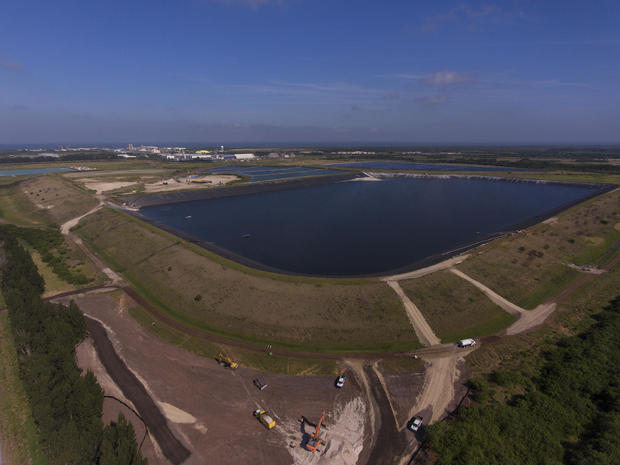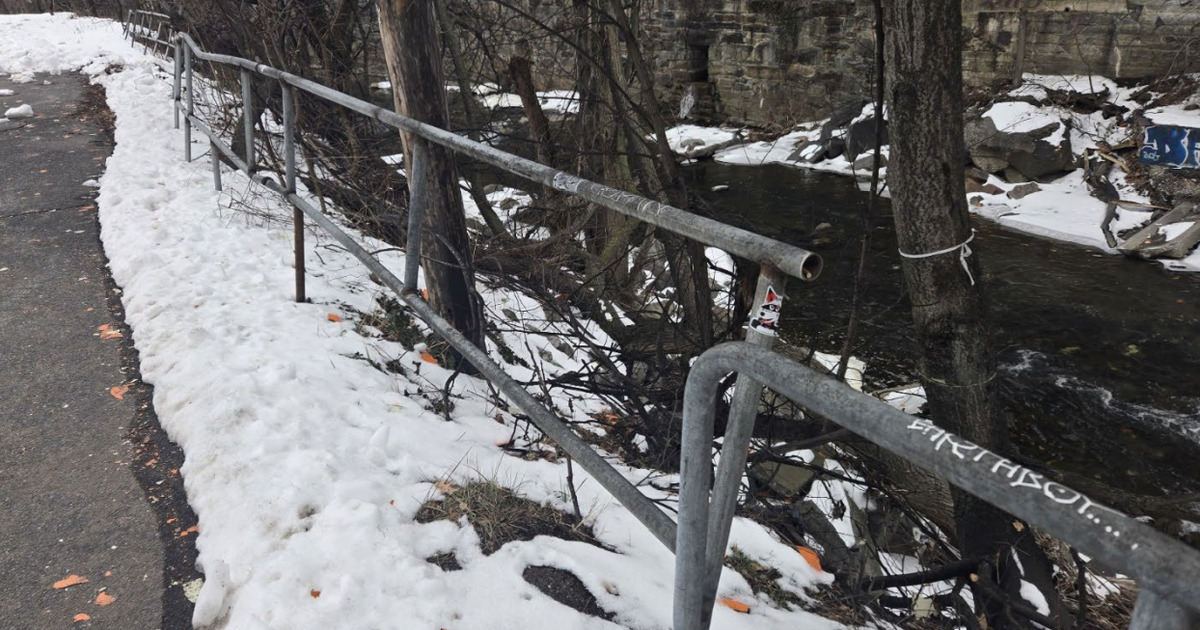Florida bill allowing radioactive roads made of potentially cancer-causing mining waste signed by DeSantis
Florida governor and presidential hopeful Ron DeSantis signed a bill Thursday that would allow for roads across Florida to be made with "radioactive" mining waste that has been linked to cancer.
The measure, brought forward by the state House, adds phosphogypsum to a list of "recyclable materials" that state officials say can be used in road construction.
The list already included ground rubber from car tires, ash residue from coal combustion byproducts, recycled mixed-plastic, glass and construction steel, which officials had previously determined are "part of the solid waste stream and that contribute to problems of declining space in landfills."
But unlike most of those products, phosphogypsum is not a material that is aggregated in landfills. It's the remains left behind from mining phosphate, which is described by the EPA as being a "radioactive material" because it contains "small amounts" of uranium and radium.
Phosphate rock is mined to create fertilizer, but the leftover material, known as phosphogypsum, had decaying remains of those elements that eventually produce radon. That substance is known as a "potentially cancer-causing, radioactive gas," a spokesperson for the EPA previously told CBS News. And because of that risk, phosphogypsum is federally required to be stored in gypstack systems – not landfills – in an attempt to prevent it from coming in contact with people and the environment.
"The Clean Air Act regulations require that phosphogypsum be managed in engineered stacks to limit public exposure from emissions of radon and other radionuclides in the material," an EPA spokesperson previously told CBS News.
Before it can be used, the state's Department of Transportation will need to conduct a study to "evaluate the suitability" of its use, the bill says, and "may consider any prior or ongoing studies of phosphogypsum's road suitability in the fulfillment of this duty." That task must be completed by April 1, 2024.
DeSantis has not yet publicly commented on the signing of this bill, and CBS News has reached out for a statement.
Elise Bennett, Florida and Caribbean director and attorney at the Center for Biological Diversity, said in a statement that the bill is a "reckless handout to the fertilizer industry."
"Gov. DeSantis is paving the way to a toxic legacy generations of Floridians will have to grapple with," Bennett said. "This opens the door for dangerous radioactive waste to be dumped in roadways across the state, under the guise of a so-called feasibility study that won't address serious health and safety concerns."
What makes phosphogypsum so risky?
Radon, the gas emitted from phosphogypsum, trails just smoking to rank as the second-leading cause of lung cancer, and is linked to about 21,000 lung cancer deaths every year in the U.S., according to the EPA. The agency also says it's the "single greatest environmental source of radiation exposure."
Because of this threat, the EPA has banned the use of phosphogypsum in projects for decades. However, a spokesperson for the agency previously told CBS News that it is permitted for agricultural and indoor research, with restrictions, and it can be approved for specific uses if the project "is at least as protective of human health as placement in a stack."
In a statement to CBS News on Friday, the EPA said that the passing of the legislation, HB 1191, "does not affect EPA's regulation of phosphogypsum," noting the legislation specifies that the phosphogypsum be used "in accordance with the conditions" of the agency.
"Any request for a specific use of phosphogypsum in roads will need to be submitted to EPA," the spokesperson said, "as EPA's approval is legally required before the material can be used in road construction."
If it is approved, the EPA previously told CBS News it would "open a public comment period, make any applications and our technical analysis of those applications publicly available, and seek input on the proposed decision."
Florida's history of phosphogypsum problems
Phosphate mining has been an ongoing source of contention within Florida for decades. This issue has most recently been seen in the controversy surrounding Piney Point, a former phosphate mining facility in the Gulf Coast's Manatee County — that after several years of problems — had a nearly "catastrophic" breach in 2021 that resulted in 215 million gallons of water with environmentally toxic levels of nutrients ending up in Tampa Bay within just 10 days.
It was found to be a contributor to a red tide event and massive fish kill in the area in the following months. It lead to a lawsuit from the state's Department of Environmental Protection, and prompted Florida lawmakers to budget $3 million to clean up the site.
Ragan Whitlock, a staff attorney for the Center for Biological Diversity, told CBS News when the bill was introduced that "history has shown wherever this waste goes, environmental contamination has followed."
The state has 25 gypstacks, several of which have had leaks, sinkholes and other issues arise throughout their lifespans. In May, more than 20 organizations, including the Center for Biological Diversity, urged DeSantis to veto the bill.
"No environmentally conscious or 'green' governor worth his salt would ever sign a bill into law approving roadbuilding with radioactive materials," Rachael Curran, an attorney with People for Protecting Peace River, said in the letter urging the governor's decision.
And even with the promise of the state's Department of Transportation looking at conducting a study or considering one that has already been done, Whitlock told CBS News he has "very little confidence" in the state's "ability to manage this project."
"The feasibility study that the Florida Department of Transportation would create is only aimed at addressing whether this would be a suitable construction material," he said. "The Florida Department of Transportation is not in the position to make a finding about the health and safety of this product to Floridians and our environment."




